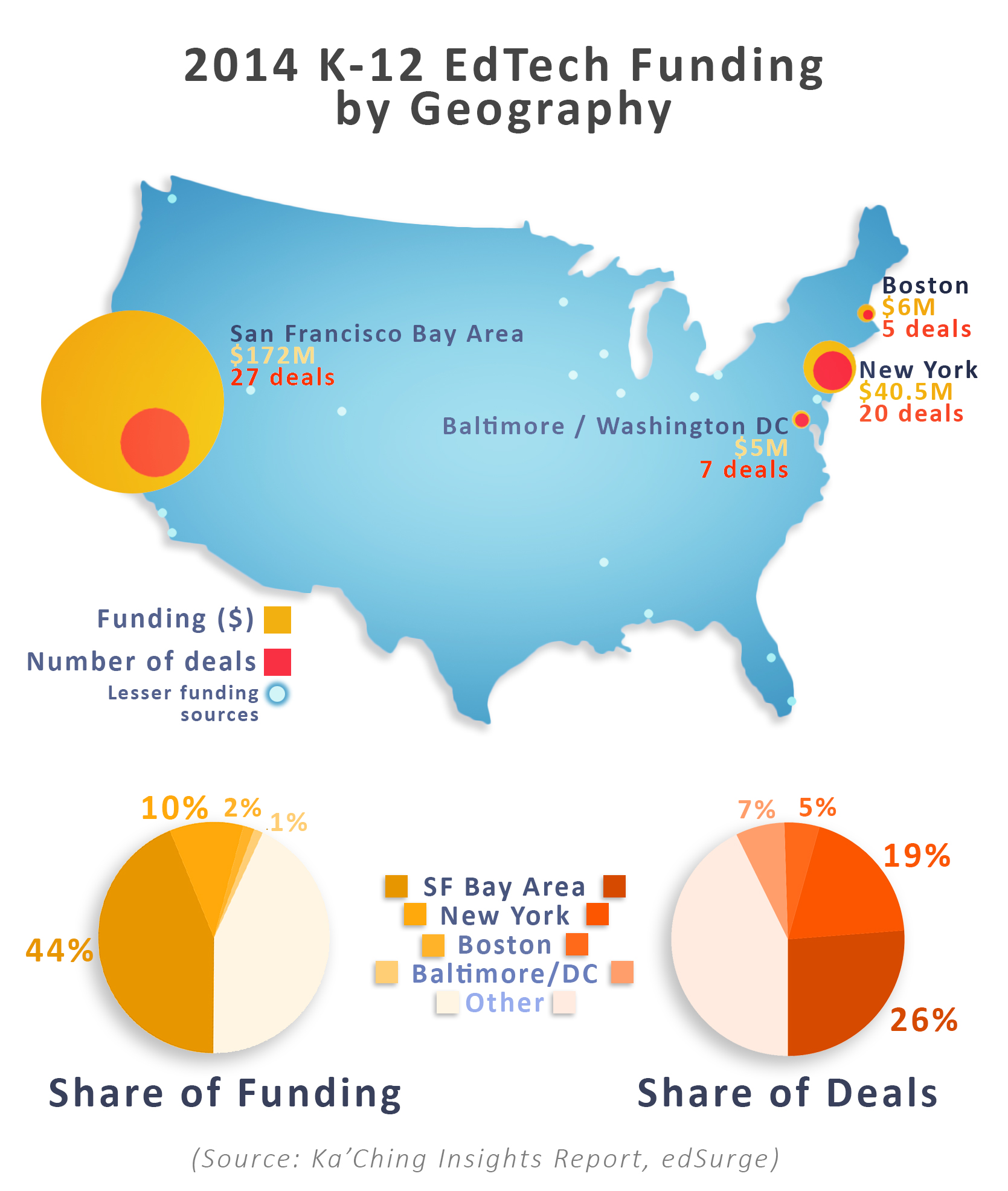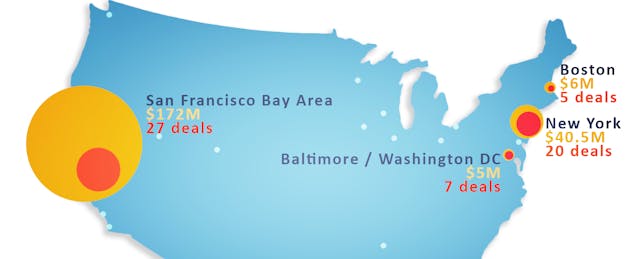Advantageous location of a startup is no substitute for a great product or entrepreneur, but it may increase the odds of success. In edtech, early success for a startup often hinges on access to talent, early-stage funding, high-quality accelerators, research partnerships and innovation-friendly school districts.
According to year-to-date K-12 edtech venture funding data provided by EdSurge, the San Francisco Bay Area remains the most popular geography for both edtech entrepreneurs and investors alike. Mirroring the broader technology market, Bay Area startups have accounted for 44% of all K-12 edtech venture dollars raised year-to-date at $172M. Additionally, the Bay Area is home to edtech companies raising some of the largest rounds of venture financing this year including: BrightBytes, Edmodo, Remind, and AltSchool.

We continue to see strong momentum in deal activity from East Coast startups based out of New York, Boston and the Baltimore/Washington Metro area. As others have noted, these cities have particular alignment with K-12 edtech:
Angels: Early stage capital is critical to retain promising edtech startups. Local angel investors, such as Frank Bonsal (Baltimore), Eileen Rudden, Jean Hammond and Jon Sackler (Boston), Matt Greenfield and Zac Zeitlin (New York) have helped evangelize and catalyze edtech capital in their respective regions.
Community: A number of organizations are helping create the conditions necessary for early-stage edtech entrepreneurs to succeed by developing a community of practice comprised of educators, administrators and entrepreneurs. The #edtechMD, the Digital Harbor Foundation, LearnLaunch and NYC iZone are several such organizations helping develop early stage edtech activity.
Accelerators: Amongst others, Kaplan EdTech Accelerator (New York) and LearnLaunchX (Boston) incubate early-stage ventures and galvanize networks of potential funders (including the NewSchools Seed Fund).
Access to Talent: Top universities on the East Coast are producing a world-class pipeline of talent and a compelling alternative to Silicon Valley. As universities continue to better serve their local startup communities, edtech will benefit.
Research Partnerships: An analog to Stanford and UC Berkeley’s penchant for feeding research and innovation to the Bay Area exists on the East Coast where top-notch research institutions are increasingly developing partnerships with the private sector. A few interesting examples that are bridging research-based solutions with practice include: Edtechnos Evaluator / NYC iZone, Colombia Teachers College EdLab, and the MIT Sloan Edtech case competition.

Our last chart examines how our own funding on the NewSchools Seed Fund compares to the aforementioned broader trends. Fifty-seven percent of our 45 edtech investments are Bay Area based while 30% is nearly evenly distributed across Washington DC, New York and Boston (it’s worth noting that our team is headquartered in Palo Alto). As edtech ecosystems continue to evolve, we will continue to seek out the most passionate and talented entrepreneurs no matter where they’re based.
Thanks to Diana Barthauer for visuals and the NSVF Seed team for reading drafts of this. Data made available from EdSurge Ka’Ching Reports.


